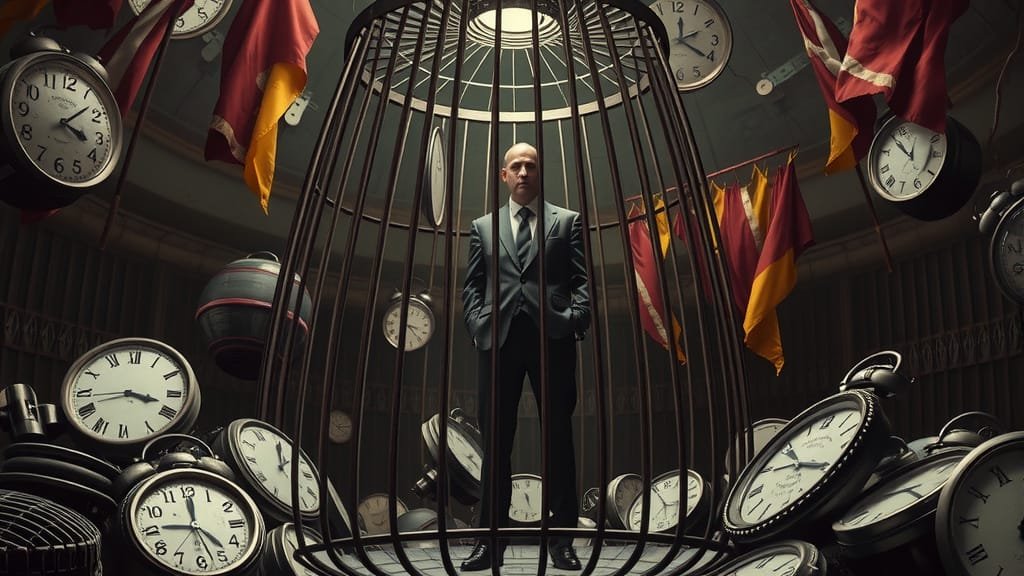In a world dominated by well-oiled political machines and parties that promise change but often deliver sameness, a growing chorus of voices, many of whom define themselves as anarchists, nonconformists, or simply awake, are beginning to question the very foundations of this system. They urge us not merely to tweak the edges but to break free from the “norm” that political parties incessantly feed us.
To live authentically and freely, we must first understand why the traditional political setup constrains human potential and what it means to step outside of those limits.
The Political Cage We Never Built
Political parties have long played the role of gatekeepers, channelling hopes, fears, and frustrations into controlled packages labelled “left,” “right,” “liberal,” or “conservative.” The problem is not just their positions but the way they shape public consent and discourse.
For many, political parties function less as vehicles of representation and more as maintenance crews for the status quo. They manage the system rather than dismantle the structures of power that breed inequality, environmental destruction, and social division.
This creates a political cage where participation often feels like choosing the lesser evil instead of enacting genuine change. Voting becomes a transaction tainted by spin, lobbying, and backroom deals. The system feeds on our compliance, conditioned to keep us engaged within its narrow bounds.
Anarchism and Nonconformity: More Than Rebellion
When you move in circles described as anarchist or nonconformist, it’s easy for outsiders to dismiss these views as mere rebellion or chaos. But at its core, anarchism is a sophisticated philosophy centred on freedom, mutual aid, and self-governance, rejecting imposed hierarchies and unjust authority.
It envisions societies where communities organise horizontally, not vertically; where decisions grow from consensus and care rather than decree and control.
Nonconformity, in this light, is not just a personal stance but a political imperative: to refuse complicit acceptance of systems that no longer serve humanity or the planet.
Breaking Free: What Does It Mean?
“Breaking away from the norm” means more than rejecting the ballot box or political parties. It means refusing to be boxed in by outdated paradigms of power and control.
It requires:
- Reimagining governance as decentralised, community-led, and participatory rather than centralised and bureaucratic.
- Building networks of mutual aid and solidarity that support well-being outside state or corporate structures.
- Embracing radical honesty and authenticity in our speech, actions, and relationships to dismantle social control.
- Reclaiming individual and collective agency over our lives, resources, and futures.
This is no naïve fantasy; it is a call rooted in historical struggles and contemporary movements that prove alternatives exist.
The Way Forward: Hope in Grassroots Movements
From indigenous sovereignty actions to community-controlled cooperatives, from urban gardens to decentralised tech platforms, the blueprint for freedom already exists at the margins, flourishing in pockets where self-determination takes root.
These grassroots efforts provide living examples of how we might live beyond political party systems, creating societies based on care, shared responsibility, and respect for diversity.
Example Breakaway Communities:
The Free Town Christiania (Copenhagen, Denmark)
The Findhorn Foundation Community (Scotland)
The Amish Communities (USA and Canada)
The Role of Critical Thought and Courage
Such a breakaway demands critical thought, questioning narratives, unlearning obedience, and courage: to act, to imagine, and to persist despite systemic pushback.
It means recognising that true freedom comes not through waiting for politicians to deliver change but through building it ourselves, here and now.
Your Place in the Journey
Whether you identify as an anarchist, nonconformist, or simply hungry for deeper freedom, now is the time for each of us to reclaim our power beyond the party lines.
It begins with breaking the mental and social shackles imposed by political dogma and stepping into the vast, sometimes chaotic, but always hopeful realm of self-governance and genuine human connection.
This path is difficult but essential, because the future of humanity depends on our ability to imagine and inhabit worlds beyond domination, beyond control… to truly live free.
Until Next Time

Discover more from Dominus Owen Markham
Subscribe to get the latest posts sent to your email.

